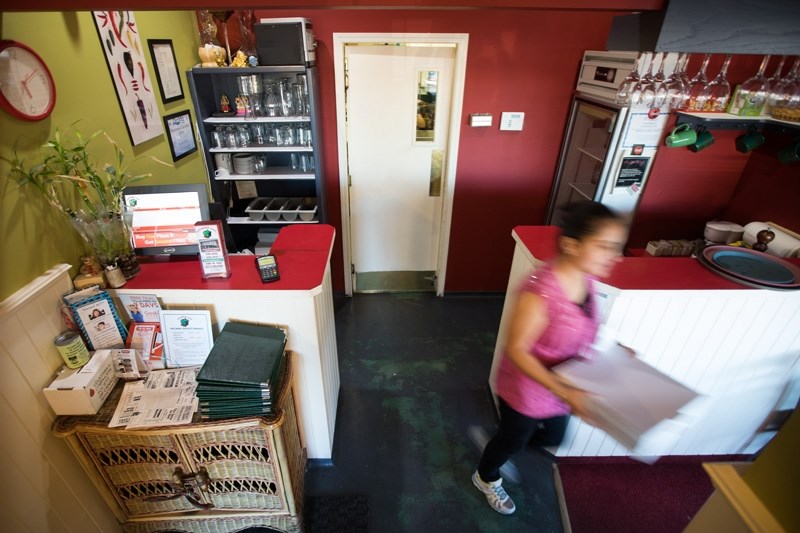Minimum wage increases are on the horizon and some business owners are concerned about how it will affect them.
The Province announced in 2015 a three-year plan to increase the minimum wage to $15. On Oct. 1, 2016 the minimum wage will rise from $11.20 to $12.20, increasing again in October 2017 to $13.60 and then to $15 in 2018. The 2016 increase will also see the abolition of the lower minimum wage for those serving liquor, which is currently $10.70.
Jag Singh, owner of Pizzaberg Café and Opa! of Greece in Okotoks, said the steep increases in labour costs over the next three years could mean changes for his businesses.
“You have to increase your prices and that affects everybody,” said Singh. “When the labour costs grow more, you have to charge more money and that’s going to hit customers’ pockets.”
He said he can’t afford to compromise on staffing because a successful restaurant needs to have sufficient wait and kitchen staff.
“You have certain food costs and labour costs, so when labour starts to cost you money you can’t cut your head off by getting rid of staff,” said Singh.
Costs for the Okotoks Opa! franchise, also owned by Singh, will likely be increased by the corporate office Alberta-wide.
He said raising menu prices will affect his customers, but many will have more money to spend because of the increase to minimum wage.
“If you have more to pay, you spend more,” said Singh.
Okotoks economic development specialist Alexandra Ross said the Town has heard some concern from business owners about the minimum wage increases, which she said will be a Catch-22, particularly for small businesses.
“When you look at it from a general level, you could say that with the increase of wages, people will have more disposable money to spend, but it will be difficult for some businesses,” said Ross.
She said small businesses could benefit from education about how to mitigate the increases to labour costs over the next three years, to learn how to overcome the challenges of paying more for wages and keeping their businesses viable.
Despite the challenges entrepreneurs may face, the increase is a good thing for those working minimum wage positions, she said.
She said constant increases to necessities like housing and groceries make it difficult for many to make ends meet on minimum wage if it doesn’t rise with the cost of living.
“It’s something that’s a natural evolution that eventually needs to take place because of cost of living,” said Ross. “Business owners need to see the other end of things, that people will have more disposable money to spend in their store at the same time.”
Okotoks and District Chamber of Commerce president Andrew Gustafson is more skeptical. He said conversations at provincial and national chamber of commerce conferences have focused on the concern of Albertan businesses with the wage increases.
“Our viewpoint is that it’s going to end up potentially hurting the people that are getting these increases in wages and has no benefit to the people who it’s intended to help,” said Gustafson. “The way it’s rolled out is sort of short-sighted.”
While he said no business or chamber of commerce would argue against paying people a fair wage for a fair day’s work, he said steep increases to minimum wage won’t achieve the government’s goal to give living wage increases to those who need them.
“A living wage is not the same as minimum wage,” said Gustafson. “The people who need to see an increase in their living wage aren’t going to see an increase because it doesn’t correlate directly to minimum wage.”
He’s further concerned that small businesses may be forced to sacrifice the number of staff they employ to cover for the 2018 increase to $15 per hour. In that case, minimum wage-earners stand to be negatively impacted with a reduction of jobs on the market, he said.
“We’re in a situation in our province right now where we need job creation, we need more jobs, people are losing jobs,” said Gustafson. “We need a business environment that allows for people to create positions, we need positions, we need jobs, and this is not something that is favourable to that.
“This doesn’t incentivize businesses to be creative in bringing on more people.”




